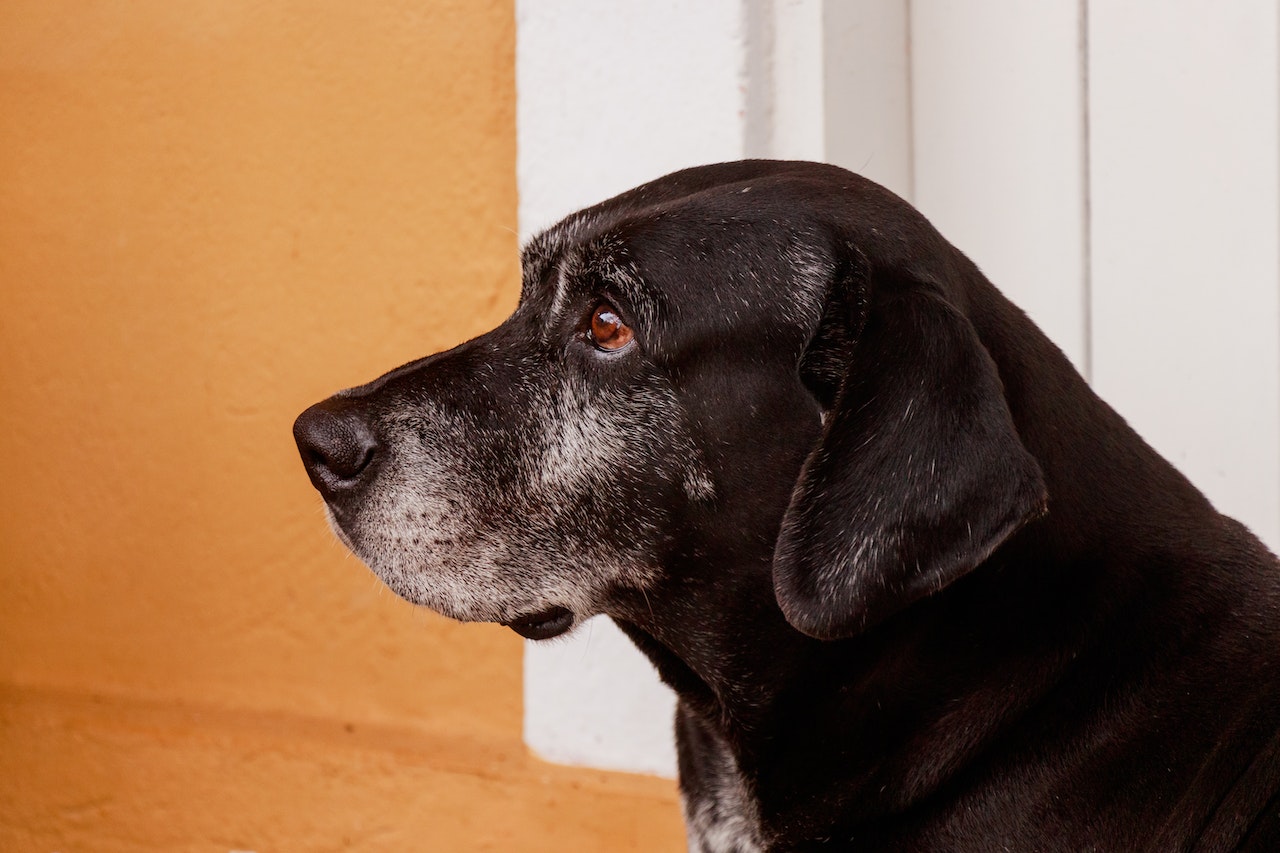At What Age Is a Labrador Considered a Senior?
Do you wonder at what age is a labrador considered a senior? While it may be difficult to admit, there comes a time when our beloved pups become seniors. But at what age is a Labrador considered a senior?
Well, age is just a number, and different factors determine when your pooch transitions from mature adult to senior citizen. Fortunately, there are signs and changes in behavior to watch out for that can help you identify when your Labrador is officially a senior.
This blog post will answer your question, “At what age is a Labrador considered a senior?” and provide advice on caring for your pup during their golden years. So let’s get started!
What is the Typical Lifespan of a Labrador Retriever?
According to AKC, the average lifespan of a Labrador Retriever is between 10-12 years old. However, this number can vary depending on the size and weight of your pup, their lifestyle, and genetics. Generally speaking, smaller breeds tend to live longer than larger breeds, such as Labradors. Adjutant, the oldest Labrador retriever on record, lived to the age of 27 years.
At What Age Is a Labrador Considered a Senior?
Generally speaking, most Labrador Retrievers are considered seniors between the ages of 8 to 10 years old. However, this can vary depending on the individual dog’s health, genetics, and lifestyle. Several factors are crucial in determining whether your Labrador is considered a senior. These include their activity level, overall physical health, and age-related illnesses.
But don’t let the term ‘senior’ fool you; older Labs can still be full of energy and adventure. It’s about understanding your furry friend’s needs and adjusting as they age.
Signs that Labrador May Be Approaching Its Senior Years
Seeing your Labrador grow old is a bittersweet experience. Witnessing them age gracefully and spending precious moments with your adult dogs is a privilege. But it’s also tough to see them struggle with the physical changes accompanying aging dog. An older dog undergo different physical changes as they age, affecting their overall health and lifestyle.
1: Grey Hair
As your furry friend ages, you may see a few grey hairs around their muzzle, eyes, and paws. It is a normal part of aging and gives them a distinguished look. If you notice excessive hair loss or bald patches, it may indicate an underlying medical condition, and a visit to the vet is recommended.
2: Sluggishness
Your once-energetic Labrador may seem less active and less interested in playing fetch or going for walks. They may also sleep longer and move slower. This is due to reduced activity, metabolism, and energy levels, typical signs of old age. However, if the sluggishness is becoming extreme, it may be a sign of arthritis or other age-related issues.
3: Weight Gain
These giant breeds appetite may remain the same, but its activity levels may have decreased, leading to weight gain. This issue is common among aging Labradors, and it can increase the risk of obesity, adversely affecting their health. As a pet owner, monitoring your furry friend’s food intake and providing them with low-calorie and nutrient-rich meals is essential.
4: Decreased Vision and Hearing
Aging can cause a reduction in vision and hearing. You may notice your dog bumping into objects and not reacting to sounds. Labradors are prone to age-related vision issues such as cataracts, glaucoma, or dry eye syndrome. If you notice any of these signs, it’s best to get them checked by a veterinarian who can provide treatment options.
5: Change in Temperament
Your once-friendly dog may become less social and less interactive as they age. You may notice them preferring to be alone, growling, or barking more often. This change in temperament can be due to anxiety, pain, or canine cognitive dysfunction syndrome, which is the equivalent of Alzheimer’s in humans. Getting your dog assessed by a vet to determine the root cause is essential.
6: Oral Health Issues
Dental health is critical for dogs, and as they age, their teeth may become fragile, and their gums may recede, leading to dental problems like tooth decay, gum disease, or even tooth loss. If you notice your dog’s reluctance to chew, bad breath, or swollen gums, it’s time to schedule a dental check-up with the vet.
7: Incontinence
Senior dogs’ control over their bladder and bowel movements may lessen, leading to accidents in the house. Incontinence could be due to age-related changes in the bladder, hormonal imbalances, or urinary tract infections. It’s vital to take them to the vet, who can diagnose the underlying issue and provide appropriate treatment.
8: Trouble Sleeping
Senior Labradors may have difficulty sleeping through the night. You may notice them restless, pacing, or whining. This behavior is usually due to age-related issues, arthritis, or discomfort. Provide a comfortable bed for your furry friend, and avoid feeding them right before bedtime to ease discomfort.
9: Loss of Muscle Tone
As dogs age, they tend to lose muscle tone, leading to weakness and less agility. This muscle tone and mobility loss can be due to arthritis, nutrition obesity, or lack of physical activity. Encouraging your furry friend to engage in regular low-impact exercises like short walks or swimming can improve mobility and prevent further muscle loss.
10: Increased Vulnerability to Illness
As your furry friend ages, their immune system may decrease, leaving them more vulnerable to illness. Though it is common since they are aging, any sudden or drastic changes should be checked by a vet. Signs of illness may include coughing, sneezing, vomiting, diarrhea, trembling, and loss of appetite. Watch out for these warning signs and get them to help immediately.
These are only a few common signs that your Lab may be aging. As a pet owner, you should always watch for any changes and take necessary steps to ensure their health and well-being.
Common Health Issues to Look Out For in Senior Labradors
Aside from the common signs of aging, senior Labradors may face several other health issues. These include:
❗Arthritis
Labrador retrievers often develop arthritis as they age. Their joints can stiffen, making it painful for them to run and jump as they once did. Keep an eye out for signs such as limping, reluctance to climb stairs, or decreased activity levels. There are many treatments and therapies available to help manage arthritis in dogs.
❗Cancer
In the case of senior Labradors, cancer is a common health concern that can go undetected if not monitored closely. It can come from skin tumors or cancer in their vital organs. While not always preventable, early detection and treatment can make all the difference in prolonging your beloved companion’s life. Stay vigilant and watch for unusual growths or changes in behavior, mood, or appetite.
❗Dental Issues
Dental problems can lead to discomfort, pain, and even infections. Other concerns may include joint pain, vision and hearing loss, and cognitive decline. This can cause severe pain and discomfort in your senior Lab. Monitor their teeth and gums for inflammation, loose teeth, or excessive tartar buildup. Regular dental cleanings can help prevent problems before they become serious.
❗Obesity
As dogs age, they tend to become less active, which can lead to weight gain. Obesity can exacerbate other health problems, such as arthritis or heart disease. Monitor canine’s diet and exercise, and consult with your vet if you have any concerns.
❗Cognitive Decline
Senior Labradors, in particular, are prone to cognitive decline, impairing their ability to think, remember, and learn. If your senior Labrador displays confusion or forgetfulness, such as getting lost in familiar surroundings or failing to recognize family members. It may be time to consult with your veterinarian. Remember, early detection of cognitive decline can help manage the condition and preserve your pet’s quality of life.
❗Heart Disease
Heart disease can manifest in various ways, such as coughing, shortness of breath, or losing appetite. It’s critical to watch your loyal companion’s overall health, paying attention to any signs of illness or discomfort and seeking medical care to ensure they stay healthy and happy as they age.
❗Kidney Disease
Older dogs are also at risk for developing kidney failure, which can cause symptoms such as increased thirst, decreased appetite, and weight loss. Your vet can diagnose and help manage this condition through medication, dietary changes, and supportive care.
❗Vision and Hearing Loss
Just like humans, senior dogs can suffer from vision and hearing loss. Watch for signs such as reluctance to go outside, bumping into objects, or not responding to commands. Your vet can help determine the cause and recommend appropriate treatment or accommodations.
❗Incontinence
As dogs age, they may develop urinary incontinence, which can be a source of discomfort and embarrassment for your senior Lab. There are many medical and behavioral treatments available to help manage this issue. Talk to your vet about finding the best solution for your pet.
❗Digestive Problems
Older dogs can experience digestive issues such as constipation or gastroenteritis, which various factors can cause. Watch for signs such as vomiting, diarrhea, or decreased appetite. Treatment may include dietary changes or medication.
These are just some of the many potential health issues senior Labradors face. It’s important to keep a close eye on your dog’s overall health and seek help from your veterinarian if you notice any changes in their behavior or physical characteristics.
Tips on How to Care for Senior Labrador
Now that you know how at what age is a labrador considered a senior, the health issues they might experience, and the importance of early detection and treatment, here are some tips on how to care for a senior Labrador
1: Regular Check-ups with Your Veterinarian
One of the most important things you can do for your senior dog is to schedule regular check-ups with your veterinarian. These visits will allow your vet to monitor your dog’s health and detect potential health issues before they become serious. Plus, your Labrador will love the attention and TLC they receive from the vet staff. Like humans, prevention is key to keeping our furry friends healthy and happy in their golden years.
2: Adjust Their Diet
Senior Labrador dogs have different nutritional needs than younger dogs. They require special diets that are lower in calories, higher in fiber and protein, and sufficiently supplemented with vitamins and minerals. You can add supplements to their current food, such as omega-3 fatty acids and glucosamine, which benefit senior dogs. Ask your vet for the best foods and supplements for your pet’s age and health condition.
3: Regular Exercise
Senior Labradors can still enjoy a good game of fetch or long walks in the park–with a little bit of adjustment, of course. Instead of high-impact activities, opt for more low-impact ones that are still enjoyable for your pup. Remember, exercise doesn’t have to be a chore, so make it fun and engaging by exploring new trails or trying out different toys. Your senior Labrador will benefit from the exercise and companionship, and you’ll spend quality time with your furry friend.
4: Comfortable Sleeping Arrangements
Caring for our senior Labradors means adjusting their daily routine and sleeping arrangements. Like us, our pups need a comfortable place to lay their heads at night.
Whether it’s a cozy blanket, supportive bed, or memory foam pillow, finding the perfect sleeping arrangement that suits your beloved senior Labrador can help them get the rest they need for a healthier, happier life. So go ahead and spoil your pup with the best sleeping situation possible – they deserve it after all those years of endless love and loyalty!
5: Keep Them Hydrated
Just like humans, dogs need water to survive and stay healthy. Always have a fresh supply of water available for them to drink, especially during exercise or on hot days. You can even add some flavor to their water to make it more enticing, like adding some chicken or beef broth. The bottom line is that your senior Labrador should never go without water.
6: Provide Routine Grooming
This goes beyond just a routine bath – it means regularly trimming their nails, cleaning their ears, and brushing their fur. Not only will this keep them looking and smelling fresh, but it will also help prevent any potential health issues arising from poor hygiene. Plus, who doesn’t love a freshly groomed and pampered pup?
7: Monitor Their Medical Needs
Older dogs require extra attention when it comes to monitoring their medical needs. Regularly give them joint supplements, and maintain their flea and tick medication. Ensure they are in a safe and secure environment and avoid any accidents that may compromise their well-being.
8: Provide Sufficient Attention
As our furry friend’s age, they require extra care and attention, just like we do. Senior Labradors need a little extra love and care because their bodies and minds are not as agile as they once were.
Giving them enough attention is essential, especially if you notice any changes in their behavior or routine. Ensure they have enough socialization, playtime, and exercise to keep them in tip-top shape. Remember, senior Labradors love being loved, so give them all the cuddles and kisses they deserve.
9: Keep Them Engaged
One tip that has proven incredibly helpful is keeping them engaged. Aside from exercise and playtime, you can give them puzzles to solve or teach them new tricks. Keeping their minds active can help reduce the risk of cognitive decline common among senior Labradors. You may also want to consider getting them an interactive toy or two to keep them entertained when you’re away.
10: Adjust Their Environment
You should better care for your senior dog by adjusting its environment. This can mean adding non-slip mats to your floors, lowering their food and water bowls, and placing a comfortable bed in a warm and cozy spot. Think of it as redecorating for your furry friend – ensuring they have a safe and comfortable space. By making a few simple adjustments, you can make a big difference in the quality of life for your senior Labrador.
Caring for a senior Labrador requires patience and understanding, but the rewards of providing them with proper care are priceless.
Cost Associated With Senior Labrador Retriever
As a responsible owner, you realize that caring for a senior Labrador Retriever can be expensive. It’s true, but the return on your investment is worth it as they provide years of loyal companionship and love. To give you an idea, here are some of the costs associated with taking care of a senior Labrador Retriever:
💲Healthcare Costs
As your pet ages, you will have to make more trips to the vet, as mentioned above. You will need to schedule regular check-ups, and you may need to address any health issues that arise. Medications, supplements, and special diets can also add to the cost of healthcare. On average, a senior Labrador Retriever can cost around $700 to $1000 per year in healthcare costs.
💲Grooming Costs
Labs are known for their love of water and mud. As your pet ages, you may find that grooming becomes more important. Regular grooming will help your pet stay clean and healthy. Depending on your location and grooming needs, grooming can cost between $30 to $90 per session.
💲Food Costs
As your pets age, their nutritional needs will change. Labs require high-quality food to maintain good health. You may need to purchase senior-specific diets or supplements to ensure your pet receives nutrients. Depending on your location and the diet you choose, food for a senior dog can cost between $400 to $2000 per year.
💲Mobility Aids
Senior dogs will have difficulty moving around. You may need to consider mobility aids such as ramps, stairs, or even a wheelchair. These mobility aids can range from $50 to $500, depending on the type and location.
💲End-of-Life Care
Eventually, you will need to prepare for your pet’s end-of-life care. You may choose hospice care, euthanasia, or cremation services. These costs range from $50 to $500 per service.
Frequently Asked Questions
At what age do Labradors slow down?
Labradors generally start to slow down when they reach the age of 7-8 years. However, this can vary based on several factors, including their overall health and lifestyle. They may become less active and require more rest and care as they age. It is essential to keep a close eye on your pet and consult with your veterinarian if you notice any changes in their behavior or health.
What is the most common cause of death in Labradors?
The most common cause of death in Labradors is cancer. According to veterinary research, around 60% of Labradors die from cancer. This emphasizes the importance of preventive care and early detection. Regular check-ups with your veterinarian can help catch any health concerns early on and improve your dog’s chances for a long and healthy life.
What type of Labrador lives the longest?
It turns out that chocolate lab and yellow lab tend to live longer than their chocolate-colored counterparts. While the reasons aren’t entirely clear, experts believe some genetic differences may play a role.
How can I make my Lab live longer?
You can take several steps to help your dog live a longer and healthier life. First, make sure to feed them a healthy and balanced diet that is appropriate for their age and lifestyle. Regular exercise and mental stimulation are also essential for your dog’s health and well-being. It is also crucial to provide regular medical care, including vaccinations, check-ups, and oral health care.
What foods help dogs live longer?
Choosing the right food for this large breed dog can significantly impact its lifespan. Foods that contain high-quality protein, healthy fats, vitamins, and minerals are essential for their overall health. Some of the best foods for Labradors include lean meats like chicken and fish, whole grains, vegetables, and fruits. Avoid foods high in unhealthy fats, sugar, and preservatives, as they can harm your dog’s health in the long run.
Final Words
Now that you know at what age a Labrador is considered a senior, it’s essential to keep in mind that every dog is different. Some may start showing signs of aging earlier, while others may still act like playful pups well into their golden years. However, as our Labradors reach their senior years, our responsibility as pet owners is to take extra care of them. So follow the tips above to ensure your pet enjoys a happy, healthy, and long life.










